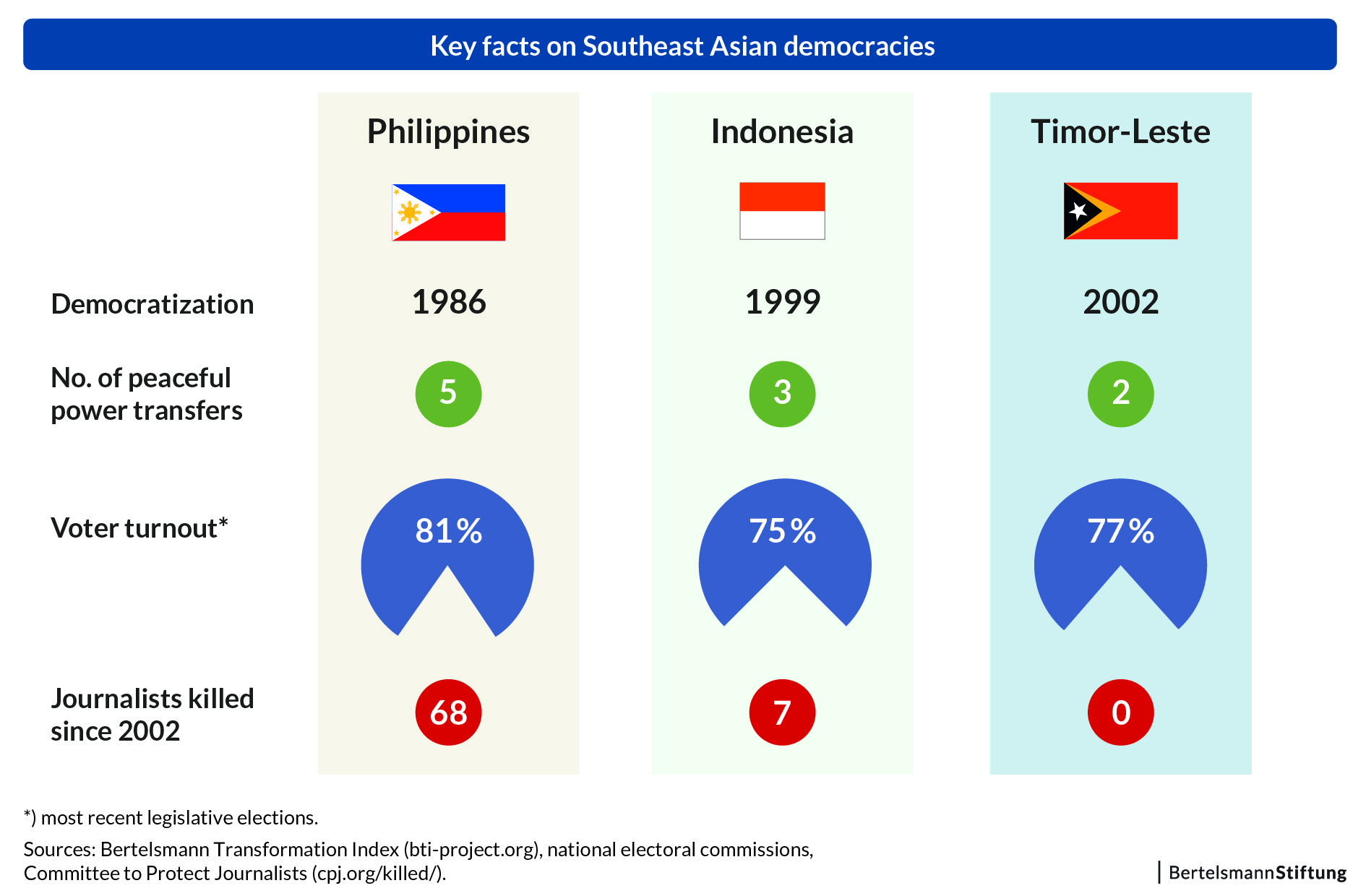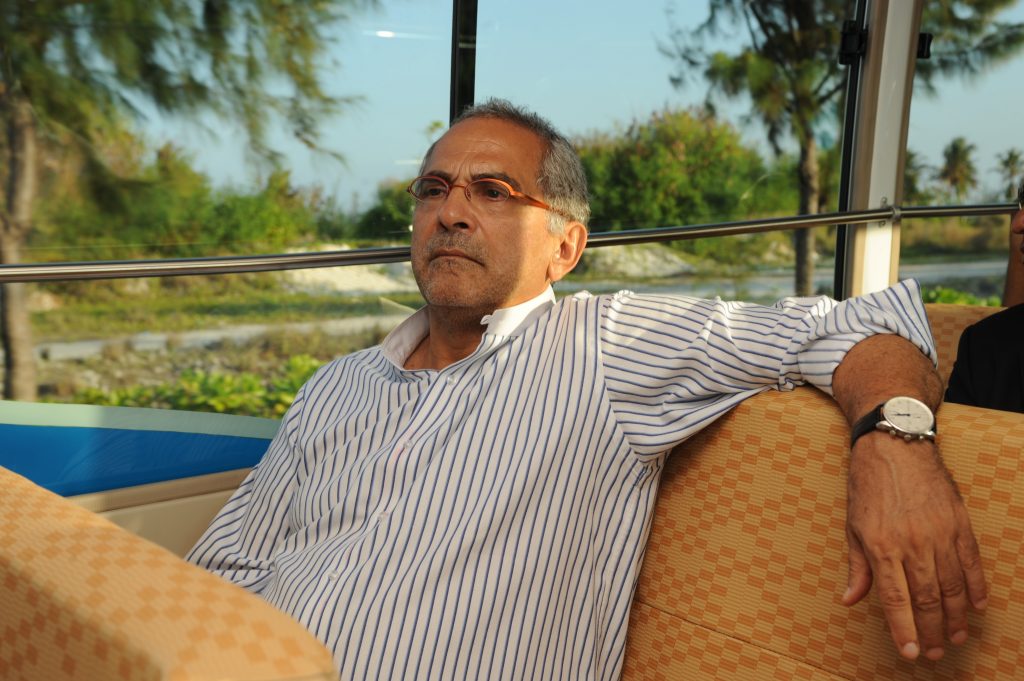“I Enjoy Sitting down with Common People”
BTI Blog spoke with José Ramos-Horta, former president of Timor-Leste and co-recipient of the 1996 Nobel Peace Prize, about the state of democracy in the country, socioeconomic challenges for the new government, and the role of the international community in post-conflict societies.
BTI Blog: Timor-Leste has elected a new parliament on July 22nd, for the first time without UN supervision. What is your assessment of the state of democracy in your country?
José Ramos-Horta: I would say confidently that democracy is consolidated and deeply rooted in the country now. It is irreversible, judging from 15 years of experience. Not only this time, but from 2001 and 2002 we have had very free and fair elections. During some of the elections in the past there were sporadic, limited incidents. But this time the elections were held in absolute tranquility, absolute transparency, and voter registration plus the whole electoral system was set up by our Timorese electoral authorities themselves. We are very pleased with that. Even when we had a political crisis in 2006, the military didn’t think of staging a coup. So our military learned much faster than most of the militaries in our region that they should leave politics to politicians and not interfere in the election process.

BTI Blog: Despite these remarkable democratic achievements, the socioeconomic situation in this country is still very challenging. What can and what should the new government do to improve the livelihood of the people?
Ramos-Horta: When you look holistically at the fight against poverty for sustainable development, for the wellbeing of the people, people say that Timor-Leste is very well off. Our GDP per capita is far higher than most African countries. In the Human Development Index, Timor-Leste fares better than the vast majority of Sub-Saharan African countries. We have made a lot of progress in just 15 years. The progress is immediately visible to anyone who was here in 2000 and comes back today. Nowadays hundreds of Timorese return home with master’s degrees from Australia, Indonesia, Singapore, Malaysia, Portugal, or the U.S. We haven’t had such highly educated people ten years ago.
Schooling doesn’t mean learning
However, despite these positive trends there is still much to do in terms of further reducing extreme poverty, improving education and increasing access to clean water. It is great that we have almost 100 percent school enrollment now, but it doesn’t mean necessarily that the children are really learning because we have difficulties with quality teachers and with the living conditions of children. We are providing a hot meal a day for hundreds of thousands of children who go to school because most of them leave home without having had a meal. We have done much by almost eliminating Malaria. How many tropical third world countries eliminated Malaria within 10 or 15 years? None. But we still have Dengue and very high incidents of Tuberculosis.
BTI Blog: Considering that Timor-Leste has received a lot of international help in the initial years, are there any lessons that other young democracies and post-conflict societies as well as the international community can draw from the Timorese experience?
Ramos-Horta: First – not necessarily in order of importance – there is a need for steady, strong international engagement. The international community should not disengage from a post-conflict country too soon. All our friends have been here from the early 2000s until today. They have helped their part, they have seen the change along the way, each contributing according to their own varying priorities and scale of support – but they have stayed.
The blessings of oil revenues
Second it needs a national leadership that is committed, that has the combined credibility of the old and the younger leadership and commends absolute support in the country. The leadership must be able to mobilize, to inspire the people, stay peaceful, and very mindful of how fragile peace can be. Because peace can be interrupted through actions of irresponsibility of a few.
The third lesson is that those in power have to deliver. Contrary to what many people say – “high expectations”, “unmet challenges” and so forth – people demand practical government actions that make a difference in their daily lives. When I travel the country, as foreign minister, as president or as citizen, I enjoy meeting and sitting down with common people, poor people, barefoot people, fisherman, farmers or children in the villages. Many young people ask for a soccer ball, a music instrument or a basic soccer field. Of course they ask for a school if they don’t have one. In the past my heart broke when we could not deliver on some of the simple things they asked for because the priorities were everywhere. But since 2005, with revenues from oil and gas resources, we started to deliver on things like infrastructure, roads and electricity.
Interview: Robert Schwarz. The interview was conducted at the “Next Generation Democracy” conference of the Club de Madrid in Díli, Timor-Leste, on 31 July 2017.
José Ramos-Horta served as president of the Democratic Republic of Timor-Leste (2007-2012). Previously he was an East Timorese pro-independence activist, exiled minister of external affairs (1975-1999), foreign minister (2002-2006) and prime minister (2006-2007). Along with Roman Catholic priest Carlos Belo, Ramos-Horta jointly received the 1996 Nobel Peace Prize.

